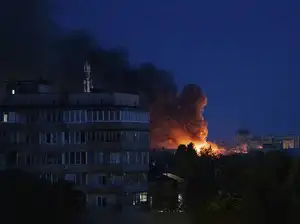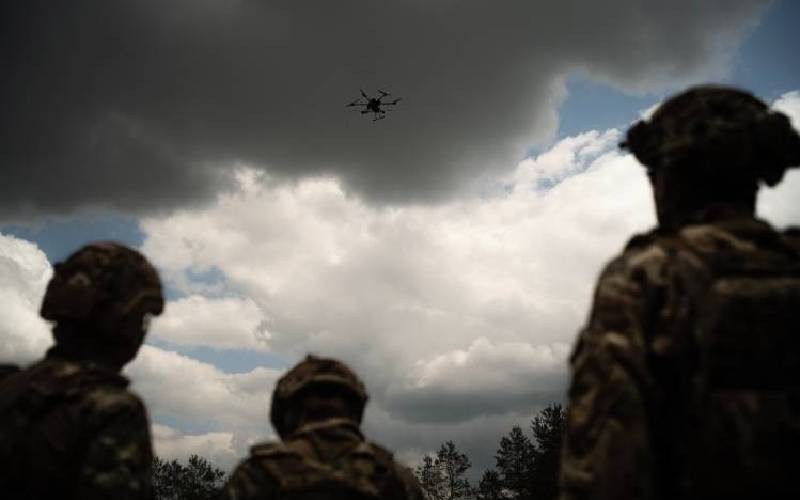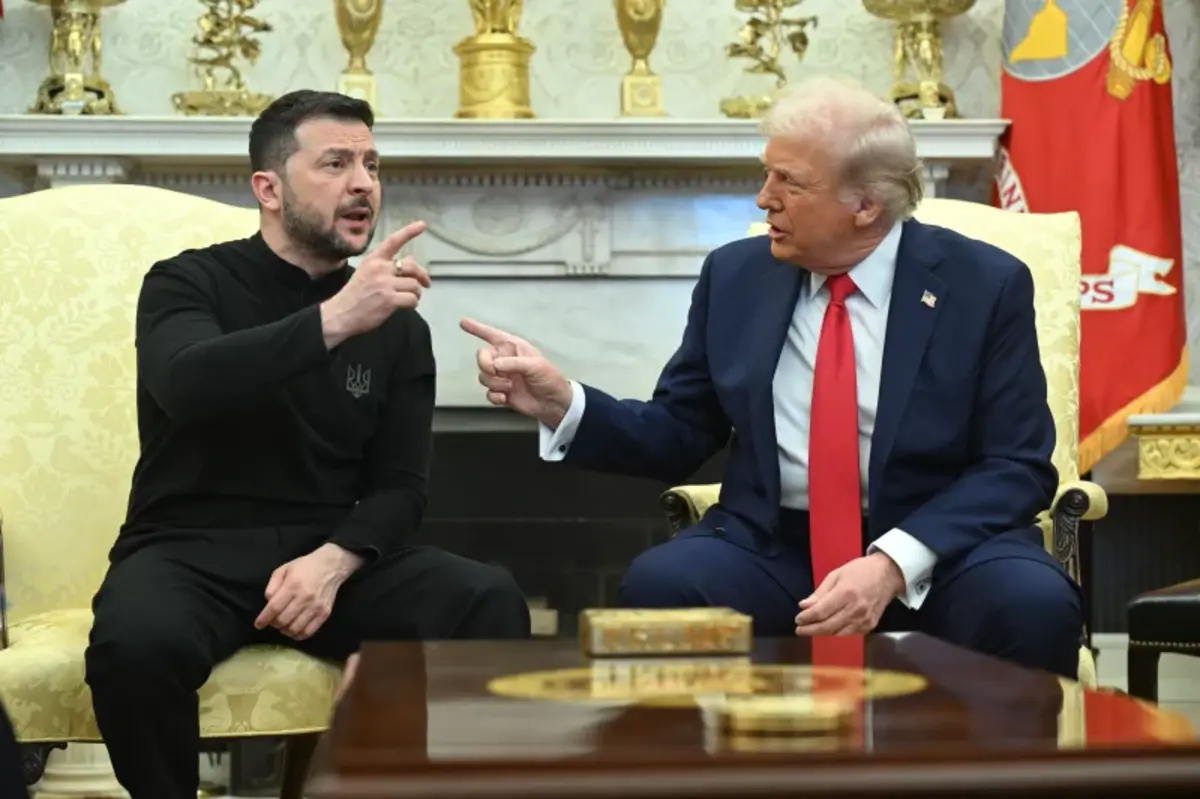 AP
APThe pause reflects a new set of priorities under President Donald Trump and came after Defence Department officials scrutinised current US stockpiles and raised concerns.
"This decision was made to put America's interests first following a review of our nation's military support and assistance to other countries across the globe," White House spokesperson Anna Kelly said in a statement.
"The strength of the United States Armed Forces remains unquestioned -- just ask Iran."

That was a reference to Trump recently ordering US missile strikes against nuclear sites in Iran.Pentagon stocks of some weapons found to be low, official says The Pentagon review determined that stocks were too low on some weapons previously pledged, so pending shipments of some items won't be sent, according to a US official who spoke on condition of anonymity to provide information that has not yet been made public.
The Defence Department did not provide details on what specific weapons were being held back.
"America's military has never been more ready and more capable," spokesman Sean Parnell said, adding that the major tax cut and spending package moving through Congress "ensures that our weapons and defence systems are modernized to protect against 21st century threats for generations to come".
The halt of some weapons from the US is a blow to Ukraine as Russia recently launched some of its biggest aerial attacks of the war, in an escalating bombing campaign that has further dashed hopes for a breakthrough in peace efforts championed by Trump.
Talks between the sides have ground to a halt.
The US stoppage was first reported by Politico.
To date, the US has provided Ukraine more than USD 66 billion worth of weapons and military assistance since Russia invaded its neighbour in February 2022.
Over the course of the war, the US has routinely pressed for allies to provide air defence systems to Ukraine. But many are reluctant to give up the high-tech systems, particularly countries in eastern Europe that also feel threatened by Russia.
Trump met with Ukrainian leader Volodymyr Zelenskyy on the sidelines of the NATO summit last week and had left open the possibility of sending Kyiv more US-made Patriot air defence missile systems, acknowledging they would help the Ukrainian cause.
"They do want to have the antimissile missiles, OK, as they call them, the Patriots," Trump said then.
"And we're going to see if we can make some available. We need them, too. We're supplying them to Israel, and they're very effective, 100 per cent effective. Hard to believe how effective. They do want that more than any other thing."
Trump administration shifts outlook on Ukraine military aid
Those comments reflect a change of thinking about providing weapons to Ukraine across the administration in recent months.
In testimony before lawmakers in June, Defence Secretary Pete Hegseth said he has moved quickly to quash wasteful programs and redirect funding to Trump's top objectives.
Hegseth said a negotiated peace between Russia and Ukraine, which has been promoted for months by Trump, makes America look strong, even though Moscow is the aggressor in the conflict.
He also said the defence budget includes hard choices and "reflects the reality that Europe needs to step up more for the defence of its own continent. And President Trump deserves the credit for that".
The defence secretary told lawmakers last month that some US security spending for Ukraine was still in the pipeline, without providing details. But he said such assistance -- which has been robust for the past two years -- would be reduced.
"This administration takes a very different view of that conflict," Hegseth said.
"We believe that a negotiated peaceful settlement is in the best interest of both parties and our nation's interests."
The change comes after Hegseth last month skipped a meeting of an international group to coordinate military aid to Ukraine that the US created three years ago.
Hegseth's predecessor, Lloyd Austin, formed the group after Russia attacked Ukraine, and Hegseth's absence was the first time the US defence secretary wasn't in attendance.
Under Austin's leadership, the US served as chair of the group, and he and the chairman of the Joint Chiefs of Staff attended monthly meetings, which were both in person and by video.
Hegseth previously stepped away from a leadership role of the Ukraine Defense Contact Group -- turning that over to Germany and the United Kingdom -- before abandoning the gathering altogether.












